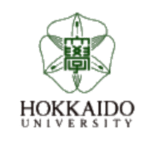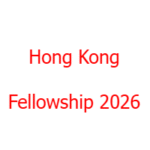
Website Nano-Satellite Technologies (PNST)
Post-graduate Study on Nano-Satellite Technologies (PNST) Fellowship in Japan 2026
The Post-graduate Study on Nano-Satellite Technologies (PNST) Fellowship is a golden chance for international students who dream to study and research in Japan. This program is supported by the United Nations Office for Outer Space Affairs (UNOOSA) and the Kyushu Institute of Technology (Kyutech), Japan.
The fellowship is now officially open for the 2026 academic year starting from August 20, 2025. It welcomes talented students from all over the world who want to build their future in the field of nano-satellite technologies.
The PNST Fellowship gives students a chance to complete a Master’s or PhD degree in Japan, fully supported. The program covers tuition fees, living costs, and research expenses. This makes it a fully funded opportunity, so students can focus only on learning and research without worrying about money.
One of the best parts of this fellowship is that students can work on real satellite projects. They gain hands-on training in designing, building, and testing small satellites. This experience is very valuable in today’s space technology industry.
Japan is known for its advanced science and technology, and studying at Kyutech will give students access to top professors, modern labs, and global connections.
The PNST Fellowship is not only about education. It also builds strong international cooperation. Students from many countries come together, share knowledge, and work as a team.
Fellowship Details
-
Country: Japan
-
Program Name: Post-graduate Study on Nano-Satellite Technologies (PNST) Fellowship
-
Type of Fellowship: Fully Free (tuition, living, and research support)
-
Eligible Countries: Open for all international students, including Afghanistan
-
Registration Opens: August 20, 2025
-
Registration Deadline: November 30, 2025
-
Interviews: December 2025
-
Course Start: 2026 academic year
-
Language of Study: English
This fellowship is a fully funded study opportunity in Japan for students from every country. It is run by the PNST program at Kyushu Institute of Technology (Kyutech), Japan, with support from the United Nations.
PNST Fellowship 2026 – Key Rules for Participation
Who Can Apply
-
Must be from a developing or non-space country
-
Must be nominated by your institution
-
Must be born after 2 April 1991
-
For Master’s: need a Bachelor’s degree in engineering or similar
-
For PhD: need a Master’s degree in engineering or similar
-
Other tech fields may be accepted by Kyutech faculty
-
Must use the skills gained in professional work
-
Equal chance for men and women (3 males + 3 females selected)
What Is Not Covered
-
No support for family or dependents
-
No travel insurance or life insurance
-
No personal property loss coverage
-
No compensation for disability or death
-
Only the costs mentioned in the fellowship are paid
When Fellowship Can End
-
If the academic background is weak
-
If English skills are not enough
-
If a student shows poor behavior
-
If the student quits without reason
-
If I cannot finish my Master in 2 years or PhD in 3 years
-
If GPA falls below 2.30
PNST Fellowship Japan 2026 – Key Information
-
Theme: Training in Basic Space Technology
-
Program Name: Post-graduate Study on Nano-Satellite Technologies (PNST)
-
Host University: Kyushu Institute of Technology (Kyutech), Japan
-
Organizers: United Nations (UNOOSA) & Government of Japan
-
Program Length:
-
Master’s: 2 years
-
Doctorate: 3 years
-
Start Date: 1 October 2026
-
-
Application Deadline: 30 November 2025 (Japan Standard Time)
-
Result Announcement: March 2026
-
Registration Link: Candidates must register online first, then get an ID and upload documents
-
Language: English
-
Available Seats: 3 for Master’s + 3 for PhD
What You Get
-
Monthly Grant: ~144,000 Yen (living, food, transport)
-
Free Tuition & Exam Fees (paid by Kyutech)
-
Air Ticket: Economy class (home country to Japan, one-way and return)
What You Pay
-
Travel inside home country to airport
-
Local transport inside Japan not covered by fellowship
-
Insurance and personal expenses
Study Benefits
-
Work on real nano-satellite projects
-
Learn design, build, and test satellites
-
Teamwork with international students
-
Degree: Master’s or PhD after thesis defense
Who Can Apply
-
Bachelor in engineering (for Master’s)
-
Master in engineering (for PhD)
-
Final year students (must graduate by Sept 2026)
-
Must have good English
-
Must show how knowledge will help home country
Selection
-
Pre-selection by UNOOSA
-
Final choice by Kyutech
-
Only 6 students total (worldwide)
PNST Fellowship Japan 2026 – Required Documents
If you want to apply for the United Nations/Japan PNST Fellowship 2026, you must prepare and upload the following papers before 30 November 2025 (JST). All files must be in English (or officially translated).
Required Application Documents
-
Nomination Form – Signed and stamped by your university or institution head.
-
PNST Application Form – Completed by applicant.
-
MEXT Application Form – For Japanese Government scholarship.
-
Research Plan – Study and research proposal (detailed for PhD).
-
Degree Certificates – Bachelor/Master or proof of expected graduation (with translation).
-
Transcripts – Official academic records with GPA and grading details.
-
Transcript Guide – Official explanation of your university’s grading system.
-
GPA/Rank Certificate – GPA (2.30 or higher) or rank in top 30% of class.
-
English Proof – IELTS/TOEFL/Duolingo (CEFR B2+), OR a letter stating that the degree was taught fully in English.
-
Education History – Explain the school system and the timeline of your studies.
-
CV/Resume – Signed and dated.
-
Referee Reports (3) – Uploaded directly by professors (one must be your last supervisor).
Extra Rules
-
File Size: Max 5MB, formats: PDF/DOC/JPG/PNG.
-
File Name: Use checklist number + name (e.g.,
01_kabir khan). -
Upload: All files must be submitted online before the deadline.
-
Originals: Final selected candidates must send some documents (diplomas, transcripts, referee report) by courier (DHL/FedEx).
How to Win PNST Fellowship Japan 2026 – Simple Guide
Winning the PNST Fellowship 2026 requires planning, careful preparation, and strong documents. Follow these easy steps to increase your chance:
1. Meet All Eligibility Rules
-
Must be from a developing or non-space country
-
Born after 2 April 1991
-
Have proper Bachelor or Master degree in engineering (or similar tech field)
-
Show you will use the knowledge in your home country
2. Start Early & Register On Time
-
Registration opens 20 August 2025
-
Deadline: 30 November 2025
-
Register online first, get your ID, and upload documents
3. Prepare Strong Documents
-
Nomination form from university head
-
PNST application form fully completed
-
MEXT scholarship application
-
Research plan (detailed for PhD)
-
Degrees and transcripts (with official English translation)
-
GPA or rank certificate (GPA ≥ 2.30 or top 30%)
-
Proof of English (IELTS/TOEFL/CEFR B2+)
-
Curriculum vitae (CV)
-
Referee reports (3, from your professors or supervisors)
4. Show Your Passion for Space Tech
-
Explain why you want to work in nano-satellites
-
Show you understand Japan and global space projects
-
Highlight how you will use the experience in your country
5. Follow All Instructions Carefully
-
Upload files in correct format (PDF/DOC/JPG/PNG) and size <5MB
-
Name files correctly (e.g.,
01_Ahmad_Khan) -
Make sure referees upload reports themselves
-
Submit everything before the deadline
6. Prepare for Interview
-
If selected, you may have an interview in December 2025
-
Speak clearly and confidently in English
-
Show knowledge, motivation, and professionalism
7. Focus on Excellence
-
Maintain good GPA
-
Follow all rules and behave professionally
-
Avoid any mistakes in documents or deadlines
8. Learn About Kyutech & UNOOSA
-
Understand the university programs, labs, and projects
-
Be ready to explain why PNST is perfect for you
9. Be Unique & Memorable
-
Highlight your special skills, achievements, or projects
-
Show how you can help your country join space technology
PNST Fellowship Japan 2026 – Quick FAQ
Q1: Who can apply?
Students from developing or non-space countries with a Bachelor’s (for Master’s) or Master’s (for PhD) in engineering or similar tech fields.
Q2: Is it fully funded?
Yes. Tuition, living costs, research, and round-trip flight are covered.
Q3: How many seats are available?
Only 6 worldwide – 3 for Master’s, 3 for PhD.
Q4: What documents are needed?
Nomination form, PNST & MEXT forms, research plan, degrees, transcripts, GPA/rank, English proof, CV, and 3 referee reports.
Q5: What is the deadline?
All documents must be uploaded by 30 November 2025 (JST).
Q6: What skills are gained?
Hands-on satellite design, build, and testing, teamwork, and global networking.
Q7: How to increase chances?
Submit strong documents, show passion for space tech, follow instructions, and prepare for interview.
Q8: What if I fail requirements?
Fellowship may end if GPA drops, English is weak, or professional rules are not followed.
Q9: Where is the program?
Kyushu Institute of Technology (Kyutech), Japan, in English.
Q10: When does it start?
October 2026 for Master’s (2 years) and PhD (3 years).
Other Best Fellowships in 2025
Fully Funded ANZSOG Fellowship 2026 for Academic Innovators in Australia
Hodder Art & Writing Fellowship USA 2025 – Princeton University
Wang Gungwu Visiting Fellows Programme at Singapore 2026 all Information
All information About the University of British Columbia Fellowship in Canada
HIIA Leadership Program in Hungary 2026 : Full Information
Brighton University Funded Global Fellowship 2025 – Study in the UK for Free










